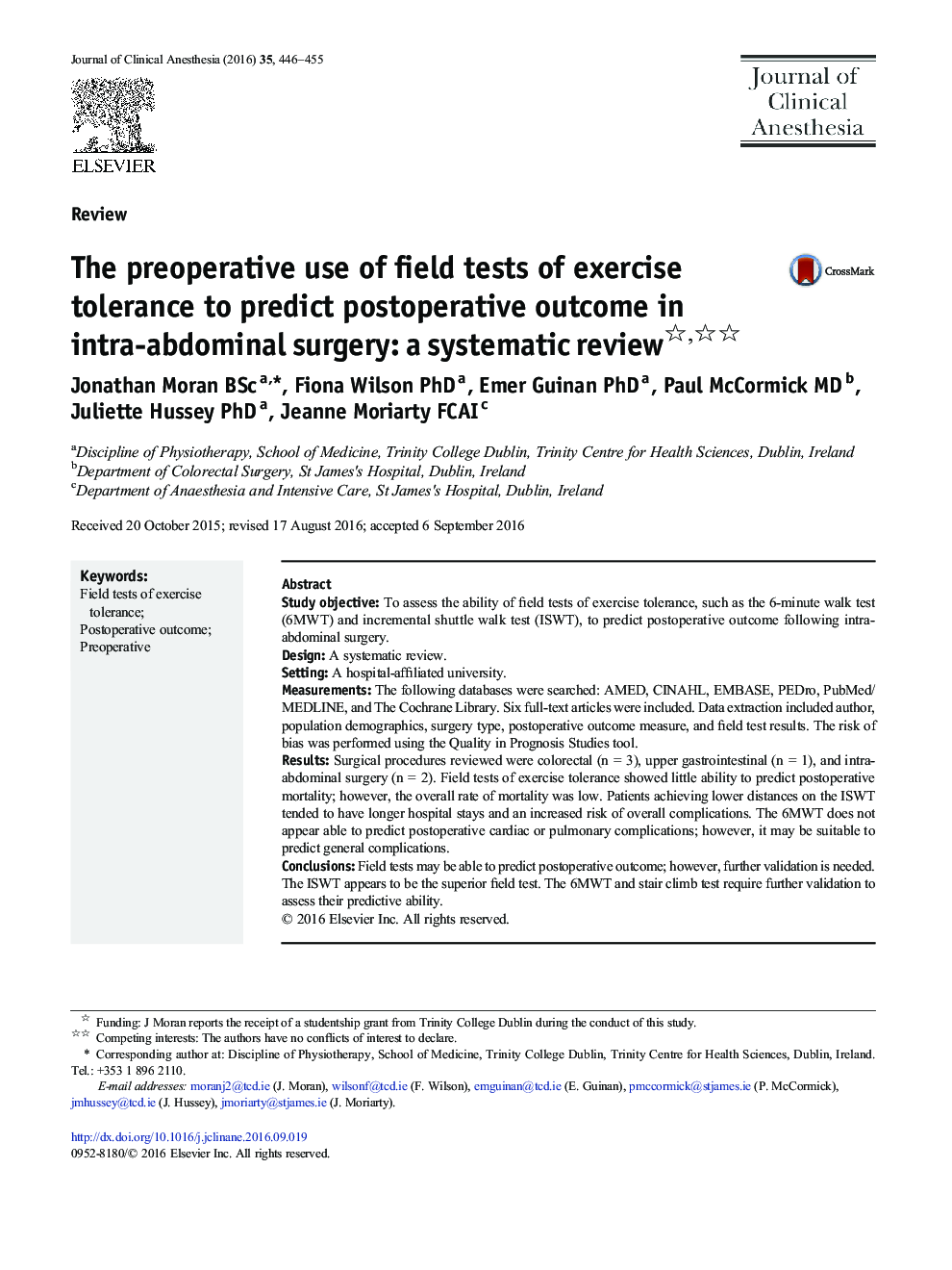| Article ID | Journal | Published Year | Pages | File Type |
|---|---|---|---|---|
| 5884458 | Journal of Clinical Anesthesia | 2016 | 10 Pages |
â¢First systematic review of the ability of field tests of exercise tolerance to predict postoperative outcome following intra-abdominal surgery.â¢The incremental shuttle walk test appears to be a good predictor of postoperative outcome.â¢The 6-minute walk test and stair climb test require further research.
Study objectiveTo assess the ability of field tests of exercise tolerance, such as the 6-minute walk test (6MWT) and incremental shuttle walk test (ISWT), to predict postoperative outcome following intra-abdominal surgery.DesignA systematic review.SettingA hospital-affiliated university.MeasurementsThe following databases were searched: AMED, CINAHL, EMBASE, PEDro, PubMed/MEDLINE, and The Cochrane Library. Six full-text articles were included. Data extraction included author, population demographics, surgery type, postoperative outcome measure, and field test results. The risk of bias was performed using the Quality in Prognosis Studies tool.ResultsSurgical procedures reviewed were colorectal (n = 3), upper gastrointestinal (n = 1), and intra-abdominal surgery (n = 2). Field tests of exercise tolerance showed little ability to predict postoperative mortality; however, the overall rate of mortality was low. Patients achieving lower distances on the ISWT tended to have longer hospital stays and an increased risk of overall complications. The 6MWT does not appear able to predict postoperative cardiac or pulmonary complications; however, it may be suitable to predict general complications.ConclusionsField tests may be able to predict postoperative outcome; however, further validation is needed. The ISWT appears to be the superior field test. The 6MWT and stair climb test require further validation to assess their predictive ability.
